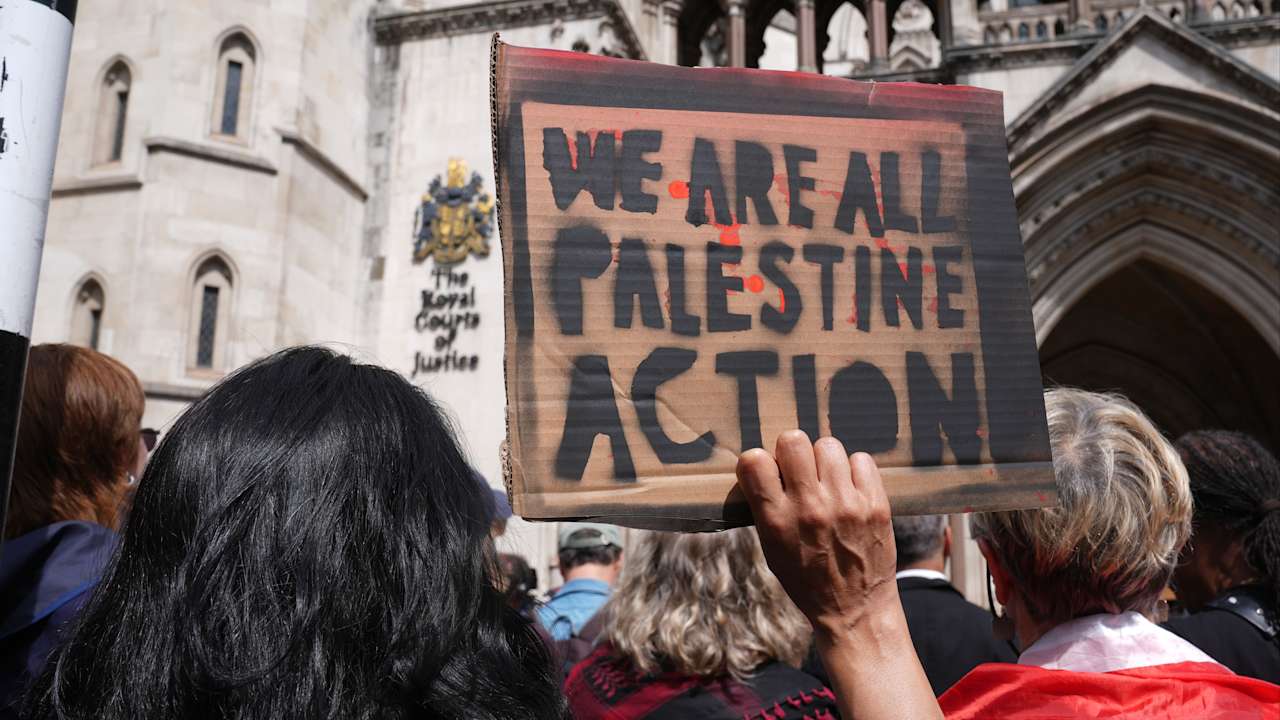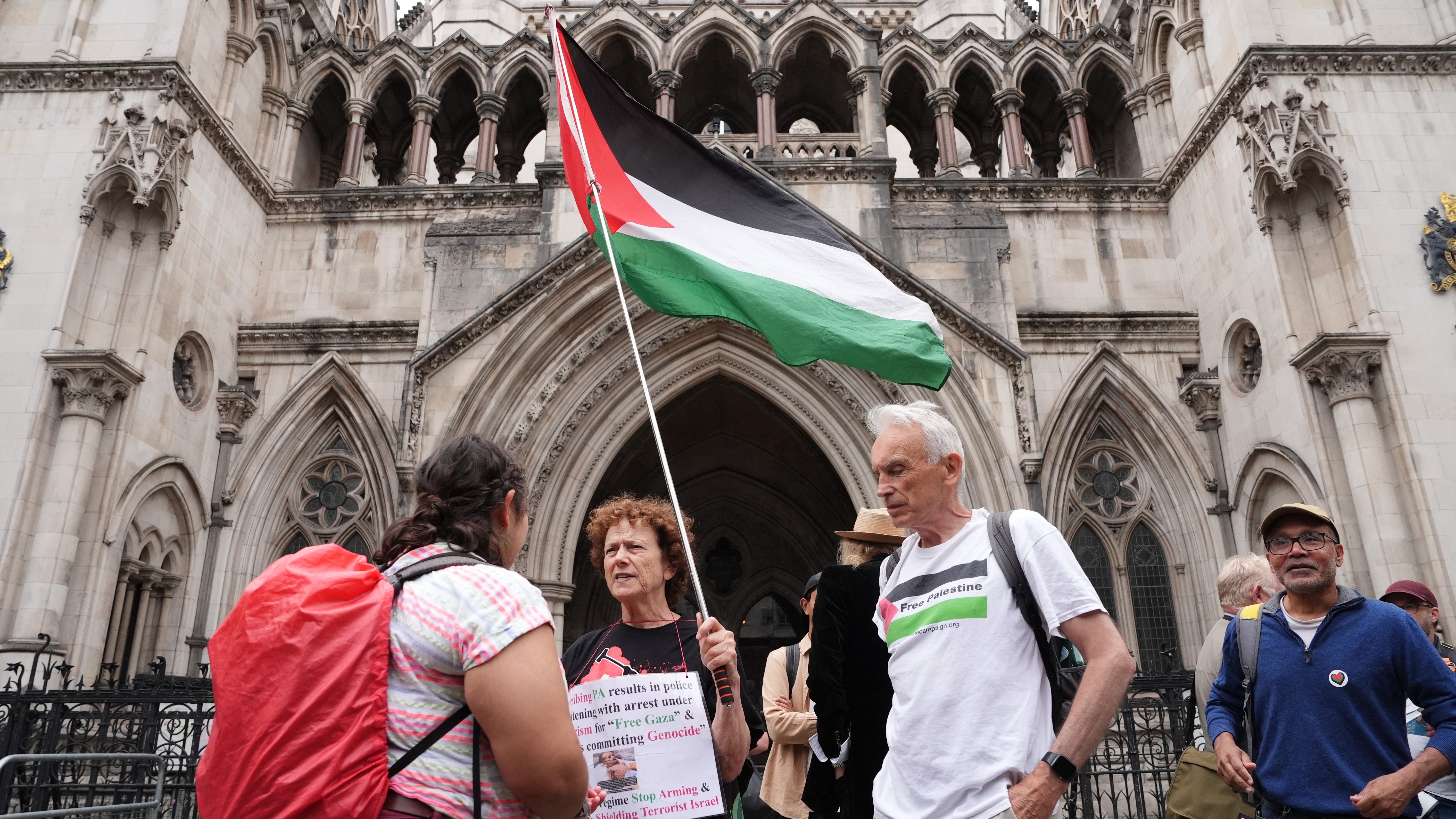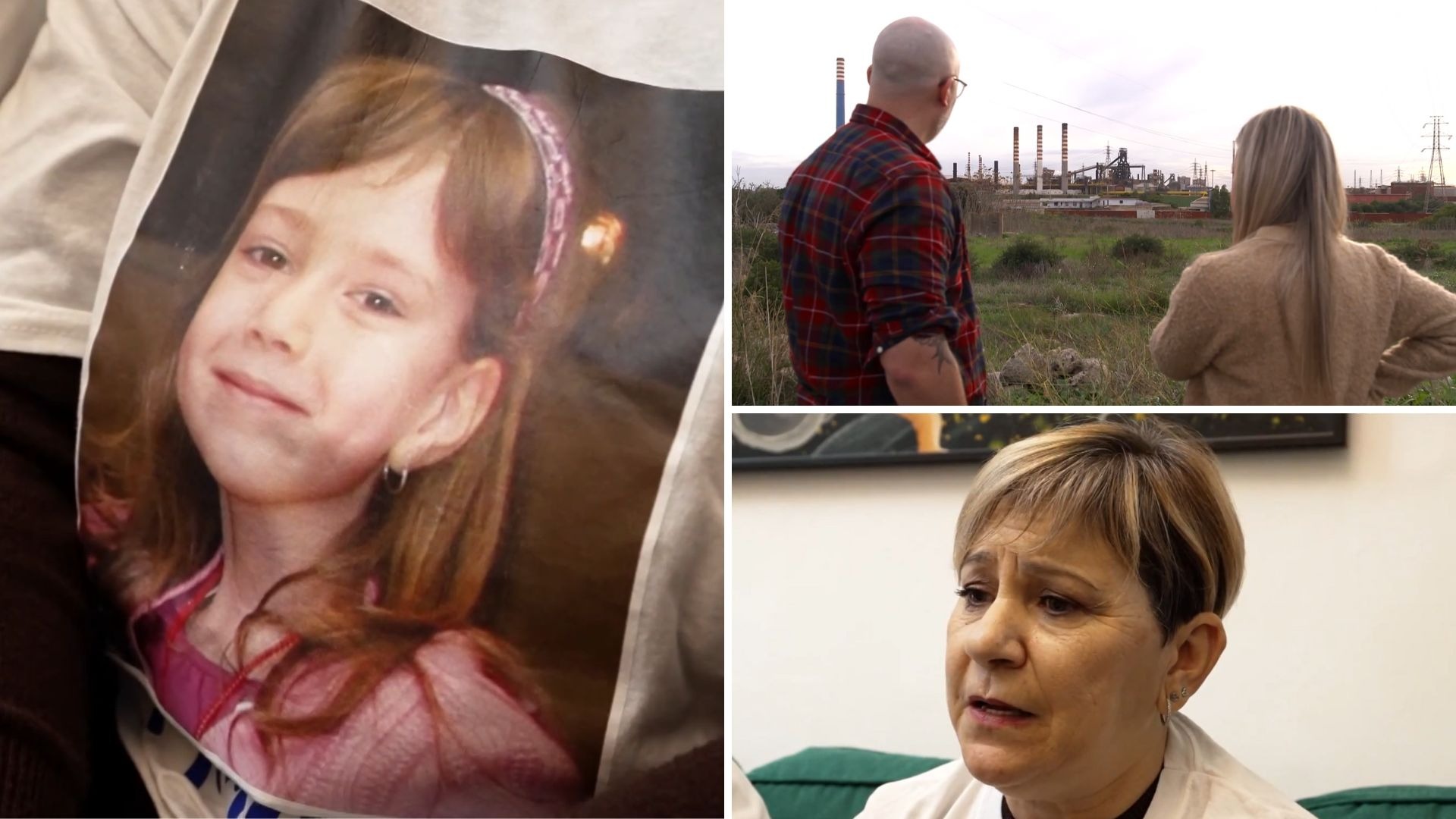Palestine Action has won a bid to bring a legal challenge against the government’s decision to ban the group as a terror organisation.
Co-founder Huda Ammori is challenging the Home Secretary, Yvette Cooper, over her decision to proscribe the group under anti-terror laws, after the group claimed responsibility for an incident at RAF Brize Norton in which two Voyager aircraft were damaged.
Police said the incident caused around £7 million worth of damage.
The ban means that support for, or membership in Palestine Action, is a criminal offence, punishable by up to 14 years in prison.

Earlier this month, lawyers for Ms Ammori asked a judge to allow her to bring the High Court challenge over the ban, describing it as an “unlawful interference” with freedom of expression.
In a decision on Wednesday, Judge Mr Justice Chamberlain said that two parts of the arguments on Ms Ammori’s behalf were “reasonably arguable” and would be considered at a three-day hearing in November.
However, he later refused a bid to temporarily pause the ban on the direct action group until the outcome of the challenge.
In his first ruling, he said it was arguable that the proscription “amounts to a disproportionate interference” of Ms Ammori’s rights to freedom of expression and freedom of assembly.
He said: “That being so, the point will have to be determined at a substantive hearing and it would not be appropriate for me to say more now.”
The judge continued that a second argument, that Ms Cooper failed to consult Palestine Action “in breach of natural justice”, could also go to a full hearing.
“As a matter of principle, I consider that it is reasonably arguable that a duty to consult arose.
“Having considered the evidence, I also consider it reasonably arguable that there was no compelling reason why consultation could not have been undertaken here,” he continued.
Mr Justice Chamberlain refused to allow Ms Ammori to challenge the Government’s decision on several other grounds, including a claim that the Home Secretary failed to gather sufficient information on Palestine Action’s activities or the impact of the proscription on people associated with it.
He also refused the request for a temporary block, finding there was a “powerful public interest” in the ban continuing and there was not a “material change of circumstance” since a previous hearing.
Following the ruling, Ms Ammori said: “This landmark decision to grant a judicial review which could see the Home Secretary’s unlawful decision to ban Palestine Action quashed, demonstrates the significance of this case for freedoms of speech, expression and assembly and rights to natural justice in our country and the rule of law itself.”
She continued: “We will not stop defending fundamental rights to free speech and expression in our country and supporting Palestinian people against a genocide being livestreamed before our eyes.”
Sir James Eadie KC, for the department, said in written submissions that by causing serious damage to property, Palestine Action was “squarely” within part of the terrorism laws used in proscription.
Mr Justice Chamberlain said on Wednesday that a High Court challenge could take place in the autumn of this year, whereas an appeal to the specialist tribunal would take much longer.
He said in a summary of his ruling: “If it were necessary to appeal for deproscription, it is very unlikely that an application before POAC would be listed before the middle of 2026.”
Follow STV News on WhatsApp
Scan the QR code on your mobile device for all the latest news from around the country






























